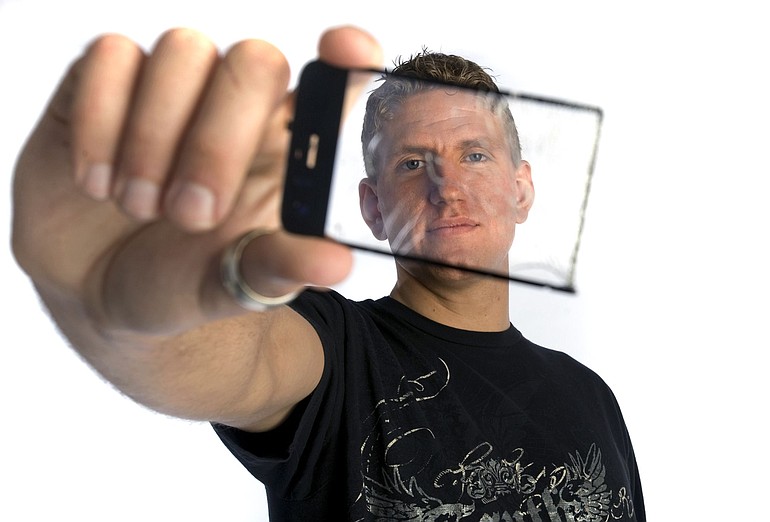AGE: 24
Old JOB: Missionary with Youth With A Mission
New Job: Owner, Northwest iPhone Repair Services
When Uriah Lyford returned to Vancouver in 2009 after seven years of missionary work, including three years running a Bible college in Cambodia, he figured his job prospects were slim. With only a GED certificate and no college education, the Vancouver native decided to forgo the job search and start his own business fixing cracked iPhones.
“(Being) fluent in Cambodian doesn’t exactly help on a résumé,” Lyford said. “So unless I wanted to work for an overseas NGO (non-governmental organization), I was out of luck. I could either go work for minimum wage or start my own business.”
After a year in business, Northwest iPhone Repair Services has a downtown store and four employees. Lyford hopes to return to missionary work someday, focused on business development, but for now he says he’s satisfied using his technical know-how to help make customers happy.
NEW JOB: I repair iPhones. People would bring me their broken screen, I’d repair it within an hour and eventually saved enough money to open my own store. I did three or four phones a day. But now with my business, I need about 10 a day to really make it run.
THERE ARE THAT MANY BROKEN iPHONES? Yes, we see everything from being run over by the car, to being dropped off a three-story building to being washed in the washing machine.
OLD JOB: I was a missionary with Youth With A Mission. They have thousands of schools around the world but I was based out of Honolulu, Hawaii. I spent three of the seven years in Cambodia. My first trip there I spent six months helping to start a small English school in the capital Phnom Penh. I learned the language quickly and after that came back to start a rural Bible college in 2005 and was there until 2009.
BIGGEST CHANGE, SO FAR: Running water and plumbing, and carpet. Obviously, living in America, coming from Cambodia, is a drastic thing but the job as a missionary is extremely mentally wearing. You’re dealing with hundreds of people’s problems and get very involved in their lives and it can be very tiring but also really rewarding.
I LEFT BECAUSE: My heart wasn’t in it like before and I always said if I became a grumpy missionary, I’d quit.
I WAS OUT OF WORK FOR: About a month after I got back. I kind of had to (get started right away). My previous employer didn’t offer any severance.
I RELIED ON: It was actually profitable from the first day. I started it with $100 and just worked out of my mother’s house. I eventually got an apartment in downtown Vancouver and used my apartment as my store.
THIS NEW GIG IS: Repairing broken iPhones, dealing with customers, finding products we can sell, finding supplies, marketing the business and always looking at how to expand the business into other markets. I also have to stay up to date with the latest services. Like the iPad just came out, so I have to learn how to fix that.
ONE THING I MISS ABOUT THE OLD JOB IS: I miss Cambodia. I also miss being really involved in changing society.
ONE THING I DON’T MISS: Living in a hut in 150-degree weather and taking showers outside.
ONE SURPRISE ABOUT MY NEW JOB IS: That it worked. I’m capable of running my own business without having any previous experience.
I’M LUCKY THAT: I was able to find a job when our economy is like it is.
THE HARDEST PART OF THE JOB TRANSITION WAS: Probably just learning how to live life in the real world and be a Christian just because I want to, not because it’s my job.
I LEARNED THAT: Being a Christian is much more difficult when you have to work all day at a real job and deal with people.
MY ADVICE: Find something you enjoy doing and find a way to make it profitable. It’s not about trying to make millions, it’s more about finding something you’re good at or have done in the past. Most people have skill sets that are capable of providing income.
If you have a job transition story to share, please send an e-mail to Cami Joner or Libby Tucker at cami.joner@columbian.com or libby.tucker@columbian.com.



